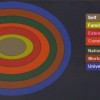 Which of the following coaching goals would you reckon leaders find most valuable working on? Becoming more strategic and impactful, inspiring their team, influencing diverse stakeholders, building executive presence, being empathetic, assertive or less stressed. While each of these comes up frequently, the one that leaders find particularly rewarding is becoming more emotionally secure.
Which of the following coaching goals would you reckon leaders find most valuable working on? Becoming more strategic and impactful, inspiring their team, influencing diverse stakeholders, building executive presence, being empathetic, assertive or less stressed. While each of these comes up frequently, the one that leaders find particularly rewarding is becoming more emotionally secure.
Despite the success, many people in leadership roles feel insecure within. They experience the imposter syndrome – the feeling that they are not good enough for their role. Some are insecure about their educational or professional background, others about their lack of gravitas.
Many are anxious about how they measure up against their peers and the narrowing opportunities at the top of the pyramid. Some have a nagging concern about the risk of losing their reputation, others about staying relevant after retiring from a high-powered role.
Why does the insecurity prevail
Invariably, our insecurities are a symptom of a deeper unfulfilled emotional need to be accepted, respected or loved. This may be a part of our karmic imprint or a result of our childhood experiences. However, we grow up confusing security with success. Success can surely enhance our financial security. But while, success, status or power can dull the intensity of insecurity, they can’t heal the sense of incompleteness within us. I can relate to this as I have been there.
Irrespective of professional success, we can remain locked in our conditioned patterns of thinking. We chase societal expectations but lack an inner anchor of deeply knowing what matters most to us. Without such clarity, the only way to assess our progress is by external validation or by comparing ourselves to others. Neither of which can fundamentally make us feel whole.
Why they find this goal important
Leaders find addressing this area crucial to their professional effectiveness and personal happiness.
Feeling insecure about achieving their results makes them more directive and micro-manage their team. As a result, the team feels less empowered. They seek perfection in themselves and others and lose sense of strategic prioritisation. The insecurity affects their decision-making, risk-taking capacity and ability to push back on unrealistic expectations.
The insecurity influences other aspects of their personality too. Some tend to be too aggressive so they are not taken lightly, others too nice so they are well liked. Either way it doesn’t serve them in cultivating meaningful relationships. To prove their worth in a new role, they try too hard and feel overwhelmed. The insecurity induces anxiety and stress, takes away inner peace, and leads to inconsistent temperament.
What they find helpful
Leaders acknowledge the need to stop identifying excessively with their professional role. Such identification creates a direct correlation between success and their sense of self-worth. Anything that threatens the success then triggers the underlying insecurities. Recognising and reminding ourselves that work is only a part of our whole self is important. What we do professionally is not who we are.
They focus on building greater self-acceptance and self-love. Achievement-oriented individuals routinely judge themselves and can be their biggest critics. Instead, they learn to be kinder to themselves. They practice unconditional love for themselves – not for being perfect but for being enough. Reminding themselves of numerous reasons to be grateful for strengthens their sense of completeness.
They also begin to appreciate the need to not measure everyone on the yardstick of professional success. Their colleagues maybe differently skilled, but that doesn’t make any of them superior or inferior human beings. Only when we connect with our wholeness, can we start to relate to that of the others.
Further, to validate and affirm their emotional self, they start to prioritize pursuing intrinsic goals in their professional life. Goals that are an authentic expression of who they are and those that allow them to follow their life’s purpose. The more we pursue intrinsic goals, the more secure we feel; and the more secure we feel, the more we pursue intrinsic goals.











 Attachment, Suffering, Ignorance and Personal Mastery
Attachment, Suffering, Ignorance and Personal Mastery Five Keys To Managing Interpersonal Conflicts
Five Keys To Managing Interpersonal Conflicts Teenage Children: An Undeniable Learning Opportunity For Parents
Teenage Children: An Undeniable Learning Opportunity For Parents Personal Mastery and Living our Lives Inside Out…
Personal Mastery and Living our Lives Inside Out… Yeh Dil Maange More! (…Or This Heart Craves for More)
Yeh Dil Maange More! (…Or This Heart Craves for More)
Keen to receive coaching related articles
Dear Rajiv,
Excellent post. Emotional security is vital and, I believe, this can be developed by right understanding that emanates from Self deep within. We need to connect with our Self and take life decisions with right understanding to feel emotionally secure and fulfilled.
Kind regards,
Ashok
Dear Ashok, thank you for your comments. Totally, our sense of emotional security is directly related to the quality of relationship we have with ourselves. It’s less a function of our external circumstances and more of our inner conditioning (whether we are born with it or acquire it through our childhood and other experiences). And hence the more we connect with our deeper self which is whole the more we can cultivate the sense of security. For some people, working with a therapist to heal past traumatic (small or big) experiences can support cultivating a healthier relationship with our inner self too.
Dear Rajiv,
Thank you for the outstanding post. Navigating how to increase awareness and overcome this situation poses a significant challenge. Could you provide additional insights on this matter?
Hi Raghu, thanks! Can I request you to kindly clarify your question? Are you looking for ideas to enhance self-awareness about our underlying insecurities or additional ideas to address them?
Beautifully articulated, Rajiv.
Aa you said “They begin to appreciate the need to not measure everyone on the yardstick of professional success. ” – many people are not aware of this. Each person is differently skilled – Very true.
Thanks Smitha!